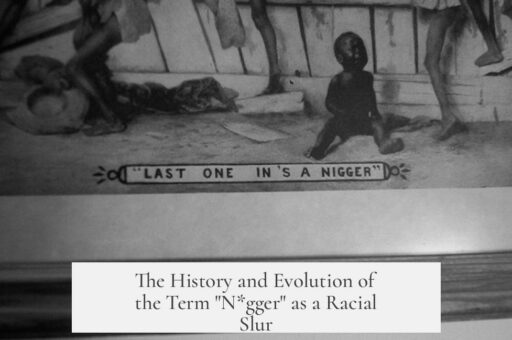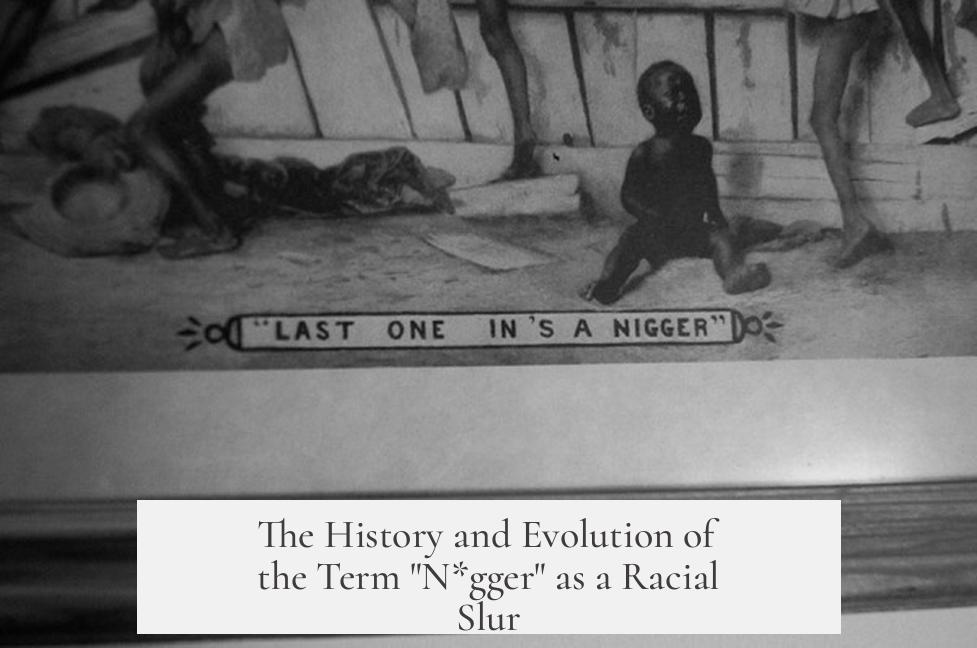The term “n*gger” becomes derogatory through its historical role in dehumanizing Black people during American slavery and racism. Initially a neutral term derived from words meaning “black,” it evolves into a racial slur linked to oppression and prejudice.
The word originates from the Spanish “negro” and the French “nègre,” both meaning “black.” These trace back to the Latin “niger,” also meaning black. Early English speakers adopted the term in the 16th century as “neger,” later morphing into the American English variant. The first documented use in America appears in 1689 in Brooklyn, where it described black people without negative intent. In early America, the term was even casually used, sometimes spelled “niggur,” resembling informal nicknames like “dude” today.
During this period, the word lacks a derogatory meaning. It simply identifies people by skin color without judgment. Literature of the late 19th century, such as Joseph Conrad’s 1897 “The Nigger of the Narcissus,” uses the term neutrally, portraying the central black character sympathetically. This shows the word initially functions as a neutral descriptor.
The shift from neutral to offensive closely ties to the social and political realities of slavery. The American system of African slavery entrenches ideas of racial hierarchy and white supremacy. Slavery relies on justifying Black people as inferior beings. Pseudoscientific methods like phrenology claim Black people are less intelligent and moral. These theories reinforce the need to dominate and exploit Black labor.
The term becomes a tool of segregation and dehumanization. It stops merely describing color and starts categorizing Black people as lesser humans. The word’s use extends beyond the individual to societal control, marking Black individuals as property or subordinates. This aligns with the ideologies that prop up slavery and racial discrimination.
Derivatives of the term emerge, reflecting segregation and racist attitudes. For example:
- “N-lover” refers to those supporting Black emancipation.
- “N-heaven” describes segregated balconies in theaters.
- “N-head” relates to phrenological claims of physical inferiority.
Additional slurs and diminutives like “coon” and “boy” reinforce disrespect and infantilization. These contribute to a broader system of racial oppression.
By the early 20th century, other terms replace the N-word in polite society. “Colored” and “Negro” serve as more acceptable identifiers for Black Americans. Eventually, “Black” becomes common, and later “African American” gains preference. Throughout, the N-word remains heavily stigmatized due to its link to slavery and racism.
Its derogatory power persists. The word’s history and usage epitomize systemic oppression and humiliation. When used by white people today, it evokes the brutal legacy of slavery, segregation, and hatred. The painful impact is collective, representing shared suffering among African Americans.
Historical records show that even within Black communities, the term is divisive. African Americans with higher social status typically reject using the term. Older publications describe boycotts of media using the N-word and the unease it causes among educated Black individuals. Meanwhile, some in lower socio-economic groups might use the term internally, reflecting complex cultural reclamation dynamics.
| Phase | Description |
|---|---|
| Original | Neutral term meaning “black,” derived from European languages |
| Slavery Era | Used to dehumanize Black people, mark inferiority, justify racism |
| Early 20th Century | Replaced by “colored” and “Negro,” but offensive meaning persists |
| Modern Day | Strong racial slur recalling slavery and systemic racism; heavily offensive |
In summary, the term transforms in meaning through social and historical processes connected to racial oppression. What begins as a factual descriptor becomes loaded with hate and discrimination over centuries. Its modern use remains a potent symbol of racial injustice and is offensive because of that.
- The N-word stems from Latin, Spanish, and French words for “black.”
- Originally neutral, it only gains derogatory power in the era of American slavery.
- Slavery and racism link the term to oppression and dehumanization.
- Various derivatives reflected segregation and racial prejudice.
- It remains highly offensive today, especially when used by non-Black individuals.
- Other terms gradually replaced it in polite society, but its painful legacy endures.




